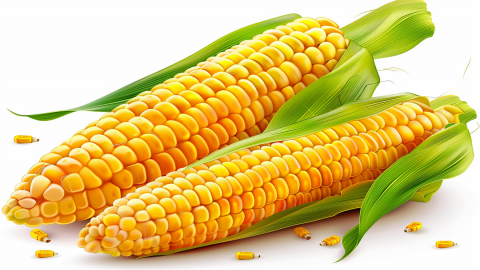Try to eat less corn if you belong to one of these three groups.
There is no such saying as "these three groups of people should eat less corn." Generally, people who should try to eat less corn include those with weak gastrointestinal function, diabetes patients, gout patients, individuals allergic to corn, and those needing to control their weight.

1. People with weak gastrointestinal function: Corn is rich in dietary fiber, which is generally beneficial for most people. However, for those with weaker gastrointestinal function, such as individuals suffering from chronic enteritis or irritable bowel syndrome, excessive corn consumption may increase the burden on the stomach and intestines, causing indigestion, bloating, abdominal pain, and other symptoms, which are not conducive to recovery and gastrointestinal health.
2. Diabetes patients: Corn contains a relatively high amount of carbohydrates, especially sweet corn, which has a considerable glycemic index. After consumption, it may cause a rapid increase in blood sugar levels, making it difficult to maintain stable blood sugar control, thus increasing the difficulty of managing diabetes and affecting overall health.
3. Gout patients: Corn is a food with a moderate purine content. During a gout flare-up, excessive consumption of corn may lead to increased uric acid production in the body, raising blood uric acid levels and potentially triggering or worsening gout symptoms, which is not conducive to treatment and recovery.
4. Individuals allergic to corn: Some people are allergic to proteins or other components in corn. After consumption, they may experience allergic reactions such as skin itching, rashes, shortness of breath, abdominal pain, and diarrhea. In severe cases, anaphylactic shock may even occur, so these individuals should avoid eating corn.
5. Those needing to control their weight: Corn has a relatively high caloric content, with approximately 112 kcal per 100 grams of fresh corn. For those needing strict weight control, excessive corn consumption may result in excessive calorie intake, exceeding the body's consumption and subsequently being converted into fat, which can negatively affect weight loss efforts.
Corn is a healthy food and its intake should be appropriately adjusted according to one's health condition. When necessary, a reasonable dietary plan should be developed under the guidance of a doctor or nutritionist.








